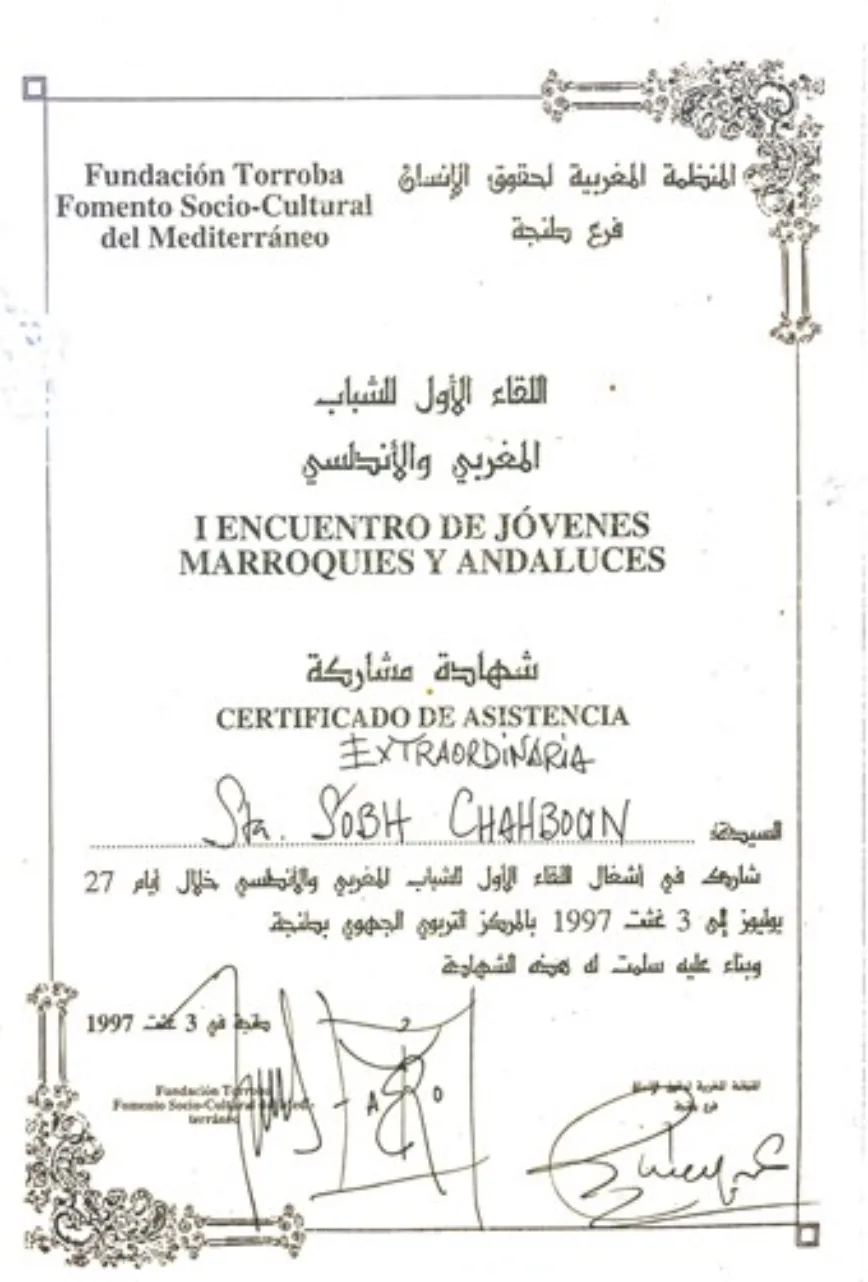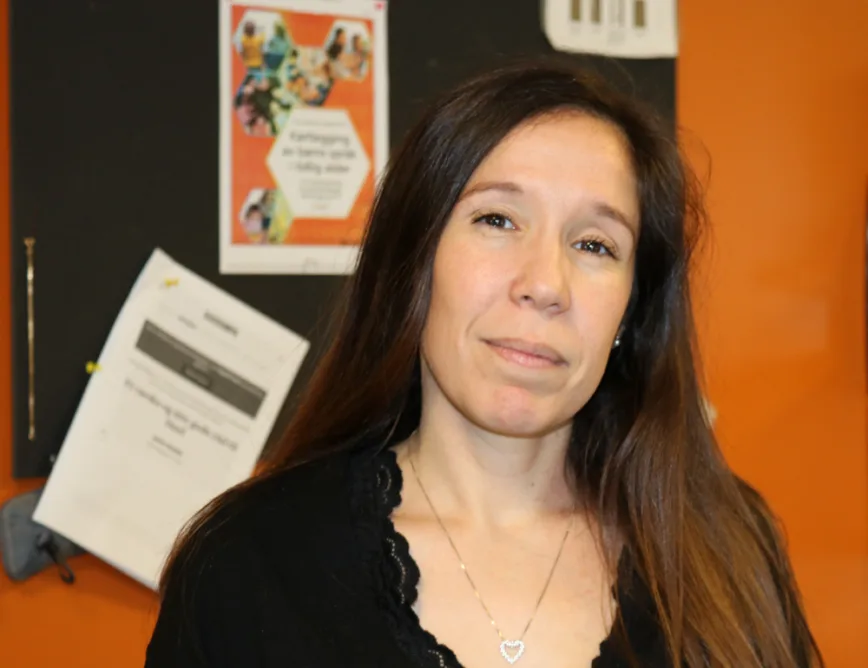- I have had a privileged background coming from a highly educated family in Morocco. My parents are professors, and my brothers each have a doctorate in surgery and pharmacy, so it was a given that I would pursue higher education. My father was a pioneer in defending the rights of women and children. He was politically active and represented Morocco at the UN. Even as a child, I was very active, and I knew I wanted to do something meaningful with my life.
Chahboun was only 11 years old when she attended her first conference. In addition to being a participant, she simultaneously translated the conference into 5 different languages.

The conference The Moroccan Spanish migration and collaboration to improve political relationships and migrants' life, where Chahboun participated as an 11-year-old.
No One is Better Than Others
The professor describes herself as an obedient child who did not oppose schoolwork.
- It was a completely normal thing for me. I knew it was the right thing to do. I come from a relatively privileged family, but I have seen people who have not had the same opportunities. My parents could give me everything. My upbringing taught me that I was lucky to be safe and have enough food, not everyone had that.
Chahboun could study whatever she wanted and wanted to contribute to improving people's lives.
- I want everyone to have equal opportunities, regardless of their background, diagnosis, or economy. My parents were never concerned with status or titles. I was raised with the belief that no one is better than others; everyone deserves the same. It means a lot to me when I can help a child or a family overcome an obstacle.
Her studies led to a bachelor's degree in speech therapy and a bachelor's degree in teaching hearing and language, both from the University of Granada in Spain. She specialized in special education focusing on hearing and language difficulties. These laid the foundation for two master's degrees, a Master in Cognitive and Behavioral Neuroscience and a Master in Educational Psychology.
Doctor of Philosophy in Psycholinguistics
The path continued into the world of research.
- I received a Marie Curie scholarship for young researchers and worked as a researcher in EU projects.
Through the University of Seville and NTNU, she completed her doctorate in 2017 with the thesis: “Figurative language processing: a comparative study between typically developing individuals and highly-verbal individuals with autism”.
- I have a PhD in autism, but I am also concerned with minorities, both different religious minorities and people with diagnoses. For me, special education does not only encompass the psychiatric picture. It also includes refugees, they deserve a better life, no one wants to be bombed.
Common Denominator: Understanding People
Chahboun does not hide that she is curious by nature. She has many interests and masters a multitude of sports, but she finds a common denominator in her research.
- To some extent, everything I have done is about understanding people. People are complex and not always easy to understand. I am fascinated by how the brain works, its cognitive properties and how these are embodied, how our perception depends on certain variables. How can something so abstract be expressed physically, I am fascinated by how the brain is so powerful that it can transform something into physical expressions.
We Have a Responsibility at DMMH
At DMMH, Chahboun teaches, among other things, a master's in special education. She is responsible for several subjects and supervises both bachelor's and master's students. Topics she teaches include research methodology, resilience and vulnerability, and academic writing.
Chahboun is very happy at her workplace and says that she usually comes to work smiling in the morning. Much of it is due to the community with her colleagues; they have a close and tight collaboration.
What she likes best about her job is seeing the students flourish.
- It makes me happy to see our students succeed. That they go out to work or publish something.
She has initiated a collaboration with two of her former students and is now in the process of writing her second article together with them. With a publication behind them, they get more opportunities, the professor believes.
- We have a responsibility at DMMH. Our students are going to work with people. If I can, I want to help the students find a job where they can improve children's lives and contribute to their development.
The Road Ahead
The newly appointed professor has several research projects underway and leads, among other things, a collaboration with the University of Eswatini.
- Here we are researching the transition from kindergarten to school for children with autism. In the project “Shared Horizons”, which I lead together with Alexander Gamst Page from NTNU, we look at Muslim parents' collaboration with the public sector.
The support she received from colleagues during the advancement process she now passes on.
- I received a lot of help from my leaders Kris Kalkman, Eva Stai Brønstad, and Lisbeth Gederaas when I advanced from associate professor to professor. They have truly done what they can to ensure I had the necessary resources. They supported me and saw that it was possible when I didn’t see it myself. I couldn’t have done it without their support.

- One of my greatest duties is to support my colleagues in their work, I have received so much help from them, says DMMH-professor Sobh Chahboun.
- My colleagues up here on the 3rd floor were also very important in this process. It doesn’t matter which academic group we belong to; we share the same values, we work for the same goal, and we support each other unconditionally. Now it is my turn to support them further in their work.
